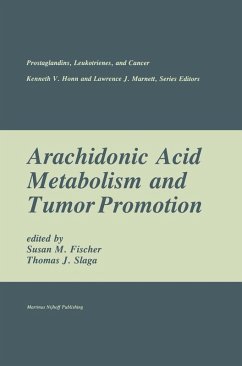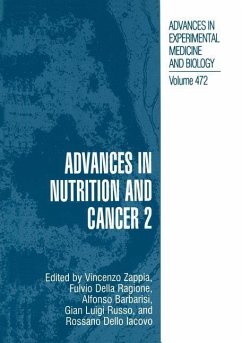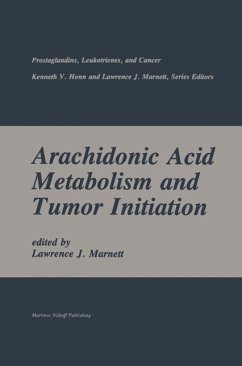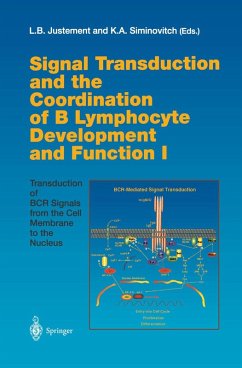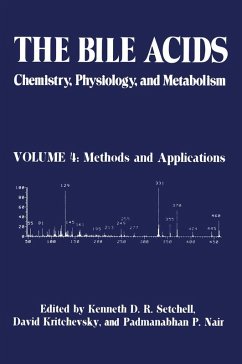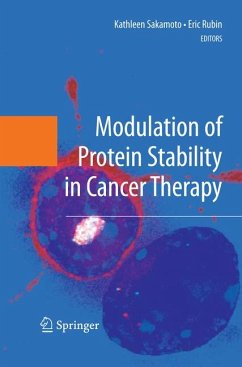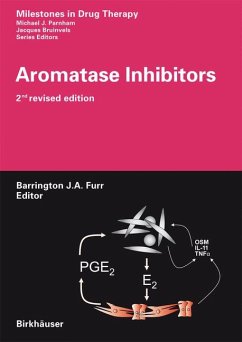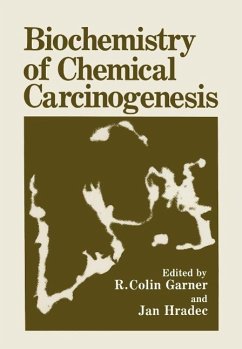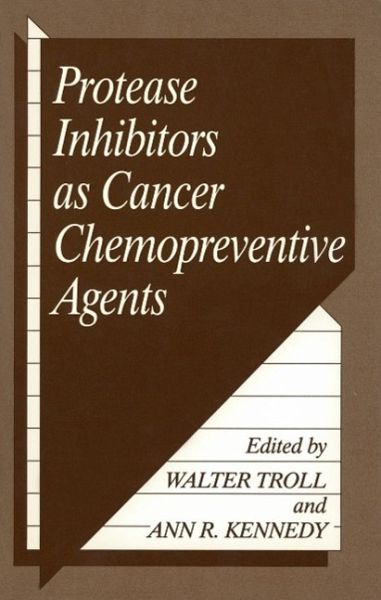
Protease Inhibitors as Cancer Chemopreventive Agents (eBook, PDF)
Versandkostenfrei!
Sofort per Download lieferbar
40,95 €
inkl. MwSt.
Weitere Ausgaben:

PAYBACK Punkte
20 °P sammeln!
Protease inhibitors (PIs) are widely distributed in plants and animals, and have a variety of functions, which include preventing digestion of seeds by insects and modifying blood clotting in animals. After it was noted that synthetic and natural inhibitors suppress two-stage carcinogenesis and breast cancer, extensive work investigating PIs as chemopreventive agents was started. PIs are unique in that they interfere with cancer development in a variety of ways, including suppression of oxygen radicals, oncogenes, and metastases. Epidemiologic evidence supports their prevention of major human ...
Protease inhibitors (PIs) are widely distributed in plants and animals, and have a variety of functions, which include preventing digestion of seeds by insects and modifying blood clotting in animals. After it was noted that synthetic and natural inhibitors suppress two-stage carcinogenesis and breast cancer, extensive work investigating PIs as chemopreventive agents was started. PIs are unique in that they interfere with cancer development in a variety of ways, including suppression of oxygen radicals, oncogenes, and metastases. Epidemiologic evidence supports their prevention of major human cancers in populations that consume foods containing them. Their supervised use in humans is on the threshold of development. The epidemiologic discovery of the importance of lentils and other seeds rich in PIs in preventing many human cancers allowed us to look at the action of PIs as chemopreventive agents, as reviewed in Chapter I (Fontham and Correa). Chapter 2 (Kennedy) discusses the role of natural PIs (e. g. , the Bowman-Birk inhibitor) as anticarcinogens and the possible limitations of their use. In Chapter 3 (Kennedy), the transformation of C3HI lOTlh cells caused by carcinogens and promoters is shown to be suppressed by PIs. Bowman (Chapter 4) relates the discovery of inhibitors in soybeans that are distinct from the Kunitz inhibitor, and the occurrence of a similar inhibitor in peanuts and other legumes. Chapter 5 (Birk) is an overview of PIs of plant origin and their role in human nutrition.
Dieser Download kann aus rechtlichen Gründen nur mit Rechnungsadresse in A, B, BG, CY, CZ, D, DK, EW, E, FIN, F, GR, HR, H, IRL, I, LT, L, LR, M, NL, PL, P, R, S, SLO, SK ausgeliefert werden.



